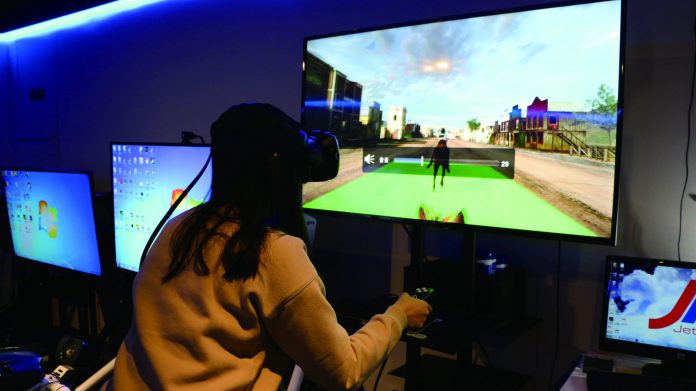Will virtual reality finally break through into mainstream success?
By Katie Cheng
Put on your headsets, shut the real world out and enter the realm of virtual reality (VR) where you can enjoy an immersive sensory experience. With the HTC Vive headset on, you can become a Star Wars Jedi and the remote control in your hand a light sabre. Wave your light sabre and fight stormtroopers and restore peace to the galaxy. Change to another VR headset and you can turn into the sole survivor in a city full of zombies. This time the remote controls become guns.
With a VR head-mounted display, anyone can explore a virtual world by looking around and interacting with elements in an artificial environment. For most people, the best known application of virtual reality is in gaming. VR applications in other commercial fields like tourism and property sales have also made headway.
With an eye on the great potential of VR, big-name brands are investing in related technology. Facebook has put US$2 billion into its VR technology Oculus, while Google is investing US$542 million into Magic Leap. Market forecasts predict VR applications will generate over US$200 billion a year by 2020. But these big players do not represent the whole of the fast-developing VR industry.
JetOne Motion, a VR experience centre located in Central, provides games ranging from VR bikes to horse racing. It costs HK$580 for half an hour of VR gaming. Noel Leung, a special project director at JetOne Motion, describes the centre as a “library” of VR devices sourced from around the world.
But entertainment and gaming are not all the company provides, it also offers content development for various corporations and organisations, such as scenario-based education. By putting on a VR headset, children can enjoy a more interactive learning experience with a virtual teacher standing beside them in a virtual world.
“We do both gaming and content development for VR simultaneously,” Leung says. “It’s a rather new technology and we are not sure which one will outrun the other. So, we do not mainly focus on either part.”
Leung says that throughout the year of 2015, most enquiries about their services were about gaming. From mid 2016 onwards, the ratio of enquries about content development began to even out with those about gaming. Leung sees this as indicative of an emerging opportunity in the local market.











































